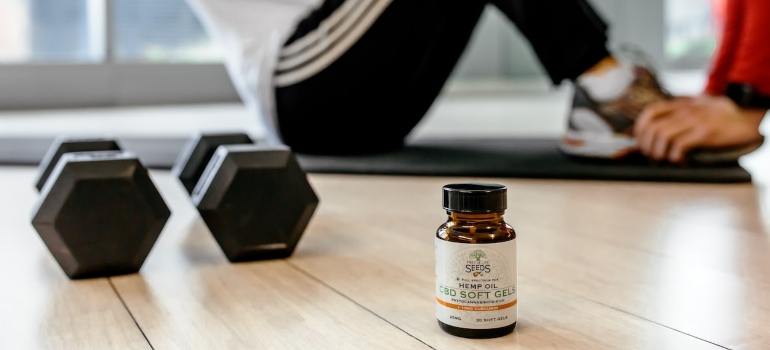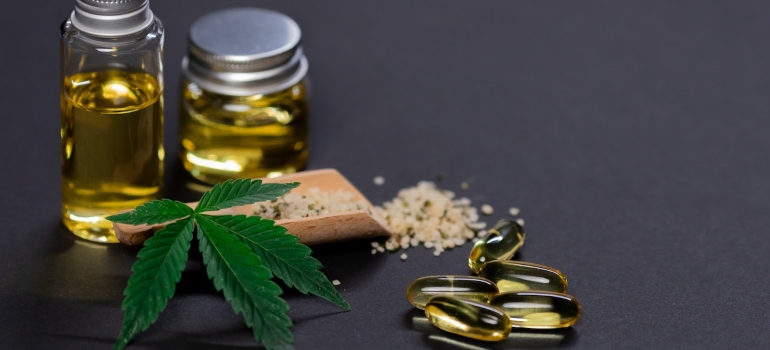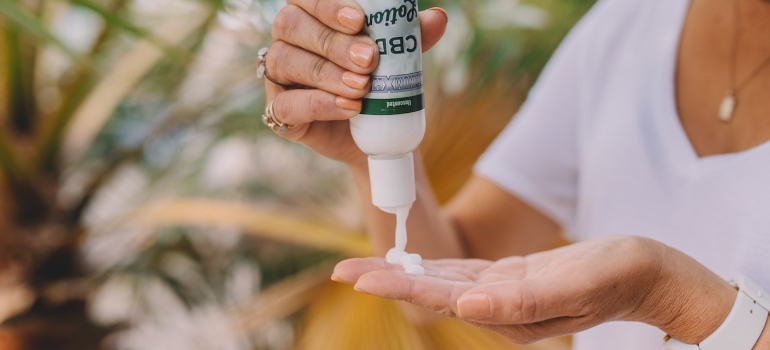Can CBD Play a Role in Addiction Recovery?
Get Help Now
Addiction remains a pressing issue worldwide – a complex interplay of psychological and biological factors makes it challenging to manage and even harder to overcome. Yet, despite the extensive research and development of numerous treatment modalities, relapse rates remain disconcertingly high. Could CBD play a role in addiction recovery and offer a breakthrough?
The Complex Nature of Addiction
Before we delve into whether CBD can play a role in addiction recovery, it’s vital to comprehend what addiction entails. This is a complex condition, a brain disease that is manifested by compulsive substance use despite harmful consequences. Although it is often seen purely as a failure of will or character, the reality is much more nuanced. It involves alterations in the brain’s reward system and the interplay of both genetic and environmental factors.
The battle against addiction often involves debunking misconceptions about substance abuse. This is particularly true in the case of marijuana use, where myths about marijuana addiction frequently hamper effective treatment. These myths often underestimate marijuana’s addictive potential or negate the fact that its misuse can lead to a substance use disorder.

Overcoming addiction can be a monumental task due to the brain’s rewiring, which creates an intense desire for the drug. From detox programs Florida offers to nationwide rehabilitation centers, these facilities focus on helping individuals navigate the withdrawal process. Traditional treatment methods, including therapy and medication, often struggle to fully address these ingrained neural pathways. In this light, the potential role of CBD in aiding addiction recovery presents a compelling avenue worth investigating. So let’s start!
Exploring CBD: The Non-psychoactive Cannabinoid
Cannabidiol (CBD) is one of the many compounds found in the Cannabis sativa plant. Unlike Tetrahydrocannabinol (THC), another well-known cannabis compound, CBD does not produce the “high” typically associated with marijuana use. This fundamental difference is vital because while you can get addicted to marijuana due to THC’s intoxicating effects, CBD usage does not carry the same risk.

CBD has gained recognition for its therapeutic properties, offering relief in various medical contexts without intoxicating side effects. Its applications range from managing chronic pain and inflammation to reducing anxiety and depression symptoms.
The Endocannabinoid System: Bridging CBD and Human Health
One fascinating aspect of CBD’s potential benefits lies in its interaction with the endocannabinoid system (ECS) within the human body. This complex cell-signaling system plays a crucial role in maintaining physiological homeostasis, influencing a range of functions from sleep and mood to appetite and immune response. The ECS is composed of endocannabinoids (natural cannabinoids produced by the body), receptors they bind to, and enzymes that break them down. When the body experiences an internal imbalance, the ECS steps in to restore order.
It’s here that CBD makes its mark. Interestingly, CBD doesn’t bind directly to ECS receptors as THC does. Instead, it interacts indirectly with the ECS, influencing the system’s receptors and enzymes. This interaction helps enhance the ECS’s ability to maintain balance in the body’s various physiological systems. This could be part of why CBD holds potential therapeutic properties for a range of conditions, including addiction.

The ECS also plays a crucial role in managing our response to rewards and stress, factors integral to addiction. Studies suggest that CBD, through its interaction with the ECS, might influence these responses, potentially aiding in addiction recovery. Considering all of this, the relationship between CBD and the ECS uncovers a promising therapeutic potential but also underlines the need for more research. As we mentioned, while even medical marijuana can become an addiction due to THC, you can safely consume CBD in many different forms without any fear of becoming addicted.
CBD and the Brain: A Focus on Neurobiology
The complex interactions between CBD and the human brain represent another crucial area of interest in the context of addiction recovery. The potential benefits of CBD during addiction recovery can be attributed to its influence on our neurobiology. Our brain is a maze of networks, with billions of neurons communicating through neurotransmitters. Among these, dopamine, often called the ‘feel good’ neurotransmitter, plays a central role in reward and pleasure centers. Its release in response to activities like eating and social interaction helps us experience pleasure. Unfortunately, drugs of abuse can hijack this system, causing an intense and harmful dopamine release.
CBD’s interaction with the dopamine system presents a unique opportunity to mitigate the effects of addiction. While it doesn’t bind directly to dopamine receptors, research suggests it may modulate dopamine activity indirectly. By influencing the brain’s reward pathways, CBD could potentially help manage the intense cravings that characterize addiction.
Another promising area of focus is CBD’s interaction with the brain’s serotonin receptors. Serotonin is a neurotransmitter vital to mood regulation, and its imbalance is often linked with anxiety and depression. CBD’s interaction with serotonin receptors may explain its potential to alleviate anxiety and depressive symptoms, which often accompany withdrawal and can be a hurdle in recovery.

Furthermore, CBD’s potential neuroprotective properties add another dimension to its appeal. Neurodegeneration, a destructive process often associated with drug abuse, leads to the death of neurons and can result in cognitive decline. As a potential neuroprotectant, CBD might help protect the brain from this damage, promoting recovery and overall brain health.
As we begin to understand more about CBD’s intricate relationship with our neurobiology, its potential in addiction recovery settings such as our Lantana drug rehab becomes increasingly evident. However, it is essential to underline the need for continued research to further confirm and explore these findings.
Can CBD Play a Role in Addiction Recovery: What Does the Research Say?
The potential role of CBD in addiction recovery has been a burgeoning area of research. Several studies have provided intriguing insights, indicating a promising future for CBD’s role in addiction treatment:
- One of the compelling findings is CBD’s potential influence on the brain’s reward system. This could potentially be leveraged for relapse prevention, a critical component in any recovery program, including those at an opioid detox center in Florida.
- A 2015 review of 14 published studies found that CBD might have therapeutic properties for cocaine, opioid, and psychostimulant addiction. It also discovered evidence suggesting CBD could be beneficial in cannabis and tobacco addiction in humans.
- Another study found that CBD could help reduce cigarette consumption in tobacco smokers eager to quit. In this study, participants who received CBD significantly reduced the number of cigarettes smoked by ~40% during treatment.
- In a preclinical study on rats, CBD was found to reduce drug-seeking behavior, even in the face of potential triggers. This finding suggests that CBD might help in relapse prevention.
While these findings hold promise, it’s important to note that much of this research is in its early stages or has been conducted on animals. More research, particularly large-scale human trials, is needed to determine CBD’s efficacy in addiction recovery conclusively. The results so far, however, do suggest that CBD might have potential as a part of a holistic approach to addiction recovery.
CBD in the Fight Against Relapse
Relapse remains one of the biggest obstacles on the road to recovery. Despite completing a marijuana detox offers, many find themselves falling back into old habits, succumbing to cravings triggered by a variety of factors. Can CBD play a role in addiction recovery by preventing relapse?

Recent studies have proposed that CBD might indeed help. One study on rats revealed that CBD could reduce drug-seeking behavior and was effective for up to five months after the last administration, despite CBD levels not being detectable in the blood. This suggests that CBD might have long-lasting effects when it comes to relapse prevention. However, while such findings are promising, they need to be validated through further human trials.
Aiding the Withdrawal Process: Could CBD Help?
CBD’s potential role in addiction recovery might extend to managing withdrawal symptoms. Withdrawal is often the most challenging part of the recovery journey, and inpatient detox programs in Florida as well as other parts of the country offer programs specifically designed to aid this process. However, CBD could offer additional support.
Individual testimonials and preliminary research hint at CBD’s capacity to alleviate withdrawal symptoms. These include physical discomforts like pain and nausea and psychological symptoms such as anxiety and mood swings. CBD’s anti-inflammatory, analgesic, and anxiolytic properties suggest that it could mitigate these withdrawal symptoms, providing much-needed relief during detoxification.
Moreover, CBD’s potential ability to normalize the dysregulated brain functions caused by substance use may further contribute to managing withdrawal symptoms. However, while these indications are favorable, comprehensive studies are required to establish CBD’s efficacy in this domain firmly.
CBD: Potential Concerns and Considerations
While the potential of CBD in addiction recovery is appealing, it’s crucial to navigate its use with caution. Below are key considerations that users, practitioners, and policymakers should account for when contemplating CBD’s role in addiction treatment:
- Side Effects: CBD, despite its numerous therapeutic properties, can also lead to certain side effects. Users may report dry mouth, diminished appetite, fatigue, or diarrhea. More rarely, it might cause weight changes or even mood swings. Recognizing these side effects is critical for any individual considering CBD as a part of their recovery plan, particularly those enrolled in programs like a Florida medical detox.
- Drug Interactions: It’s noteworthy that CBD might interact with other medications. It could either enhance or undermine the effects of certain drugs, posing potential health risks. For this reason, a consultation with a healthcare provider before starting a CBD regimen is paramount.
- Legal Status: While CBD is federally legal in the U.S., the rules can differ at the state level. A comprehensive understanding of local laws is vital to avoid any legal complications. This complex legal landscape reflects the different public opinions on marijuana legalization, leading to a patchwork of policies across the country.
- Regulation and Quality Control: Due to the absence of FDA approval, the CBD market faces a lack of stringent regulation. This situation could lead to products of varying quality on the market. Therefore, procuring CBD from reliable sources to ensure safety, potency, and absence of contaminants is of utmost importance.

Navigating these considerations is key to ensuring a safe and effective experience with CBD. This is especially true if you plan on purchasing CBD on your own. Do an extensive research before ordering anything online or buying it at your local farmacy.
A New Horizon: CBD and the Future of Addiction Recovery
As we revisit our central inquiry, “Can CBD play a role in addiction recovery?”, the landscape seems very optimistic. Despite the need for more extensive research, current studies and testimonials suggest that CBD could become a powerful tool in combating addiction. However, it’s essential to remember, though, that while CBD holds potential, it’s part of a plant that can lead to misuse. Having in mind that even medical marijuana can become an addiction if not used responsibly reinforcing the need for careful regulation and individual caution in any treatment involving cannabis.
However, the stigma around cannabis use, regulatory hurdles, and the need for further scientific backing present considerable challenges. It’s essential to approach this potential solution with an open yet critical mindset, focusing on rigorous research and careful application. With continued exploration and a commitment to understanding this complex plant compound, we may see a future where CBD could become a part of a new wave of addiction treatment, changing lives from the bustling cities of California to the drug detox in Florida.
In the end, a future where CBD plays a pivotal role in addiction recovery might not be far off. It could offer renewed hope for those grappling with addiction, heralding a new era of more effective, comprehensive treatment strategies. As the research continues to evolve, so too does our understanding of just how CBD might change the face of addiction recovery.